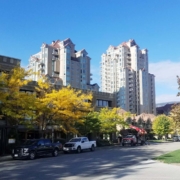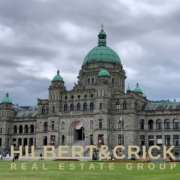Speculation and Vacancy Tax and What the Latest Changes Mean for Central Okanagan Property Owners
The Speculation and Vacancy Tax continues to change in British Columbia, and its impact is now strongly being felt in the Central Okanagan. Many homeowners in Kelowna, West Kelowna, Lake Country, and surrounding communities have recently had to declare for the first time. They are now negotiating the implications of the tax for their real estate plans. At Hilbert&Crick, we have been guiding homeowners and investors through these changes and helping them understand how the tax may affect property ownership and future decision-making.
This article provides even more clarity on recent expansions and rate increases, and what buyers and sellers should be aware of moving forward.
Why the Speculation and Vacancy Tax Exists
Introduced in 2018, the Speculation and Vacancy Tax was designed to discourage property speculation and reduce the number of vacant homes in pressure markets. The intention is to ensure more homes are being used for actual residency, rather than investment holding.
Initially, the tax applied to Metro Vancouver, Greater Victoria, Kelowna, and West Kelowna, among others. However, it has steadily expanded across the province, particularly into regions experiencing housing supply and affordability challenges.
Recent Expansion Affecting the Central Okanagan
The latest expansion, announced for the 2024 tax year, brought more Okanagan communities into the fold. Property owners in the following nearby regions were required to declare by March 31, 2025:
- Vernon
- Coldstream
- Lake Country
- Peachland
- Penticton
- Summerland
- Salmon Arm
If you own a secondary residence, recreational property, investment condo, or inherited family property in any of these areas, you may now be required to declare annually.
Upcoming Tax Rate Increase in 2026
One of the most notable changes announced in the 2025 provincial budget is the increase to the tax rate beginning in the 2026 tax year:
| Owner Type | Previous Rate | 2026 Rate |
|---|---|---|
| BC residents and Canadian citizens | 0.5% | 1% |
| Foreign owners and satellite families | 2% | 3% |
This rate is applied to the assessed value of the property, which means the tax impact can be significant for Central Okanagan properties, given the ongoing appreciation in the region.
For example, a Kelowna property assessed at $850,000 that does not qualify for an exemption will see the annual tax double from $4,250 to $8,500 for Canadian residents, and even more for foreign owners.
Why This Matters for Kelowna and West Kelowna Real Estate
The Central Okanagan sees a wide range of buyers, including:
- Local families upgrading or downsizing
- Seasonal or part-time residents
- Out-of-province buyers seeking lifestyle relocation
- Investors seeking long-term rental opportunities
The Speculation and Vacancy Tax affects each of these groups differently.
For Sellers:
Some owners may now choose to sell due to the increased holding cost. This could create additional inventory in certain segments of the market, particularly condominiums and vacation-use homes.
For Buyers:
If you are purchasing a home that will not be your primary residence, it is important to understand how occupancy rules work and what exemptions may apply. Buying with incorrect assumptions can result in significant unexpected annual expenses.
For Investors:
Well-managed, legitimate long-term rentals typically qualify for exemption, but documentation and tenancy requirements must be followed carefully.
How Hilbert&Crick Help Clients Understand These Changes
Our role is not simply to help clients buy or sell property. It’s to ensure they are making well-informed decisions based on current regulation, long-term market conditions, and their personal goals.
We assist clients with:
- Understanding whether the tax applies to a current property or an upcoming purchase
- Exploring ownership strategies that may qualify for exemptions
- Identifying investment opportunities that remain financially sound under the new tax structure
- Evaluating how these changes could affect resale value or holding strategy
Every homeowner’s situation is unique, and real estate advice should reflect that.
Have Questions About How This Applies to You?
Whether you are:
- A homeowner evaluating whether to sell
- A buyer considering a second property
- An investor exploring rental opportunities in Kelowna or West Kelowna
Hilbert&Crick can provide clarity and tailored real estate advice.
Reach out today to discuss how these tax changes may influence your real estate plans and to ensure your next step is the right one.
FAQ: Speculation and Vacancy Tax in the Central Okanagan

Who needs to declare the Speculation and Vacancy Tax?
All property owners in applicable regions must file a declaration each year, regardless of whether they live in the home full-time. This applies to Kelowna, West Kelowna, Lake Country, Vernon, Penticton, and the surrounding areas included in the recent expansions.
Does my primary residence qualify for an exemption?
Yes. If the property is your primary home, you will generally qualify for an exemption, but you still need to complete the declaration annually.
What if I own a vacation or seasonal-use property?
If the property is not your primary residence and is not rented for most of the year, you may be subject to the tax. This has become especially important in communities with high second-home ownership, such as Peachland and the Kelowna lakeshore.
Are long-term rental properties exempt?
Typically, yes. However, the property must be rented to a tenant for at least six months of the calendar year in periods of at least 30 days. Short-term rentals do not meet the exemption requirements.
What if my family uses the home part of the year?
Personal seasonal or recreational use does not qualify as an eligible occupancy. If the property sits vacant for much of the year, the Speculation and Vacancy Tax may still apply.
How does the 2026 tax rate increase affect me?
The rate increases to 1% for Canadian citizens and 3% for foreign owners starting in the 2026 tax year. Owners who previously paid a smaller amount may now see their annual cost double if they cannot claim an exemption.
Can I avoid the tax without selling the property?
Possibly. Some owners may qualify for exemptions based on tenancy, renovation timelines, life circumstances, or residency status. It is important to confirm eligibility before making changes.
Where can I get guidance specific to my situation?
Hilbert & Crick works with clients to understand how property usage, investment strategy, and future plans interact with the tax rules. Every situation is different, and personalized advice is strongly recommended.














Leave a Reply
Want to join the discussion?Feel free to contribute!